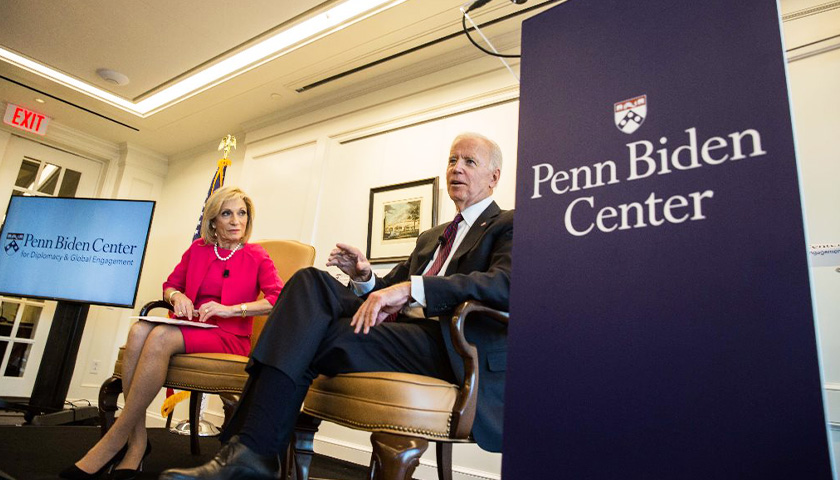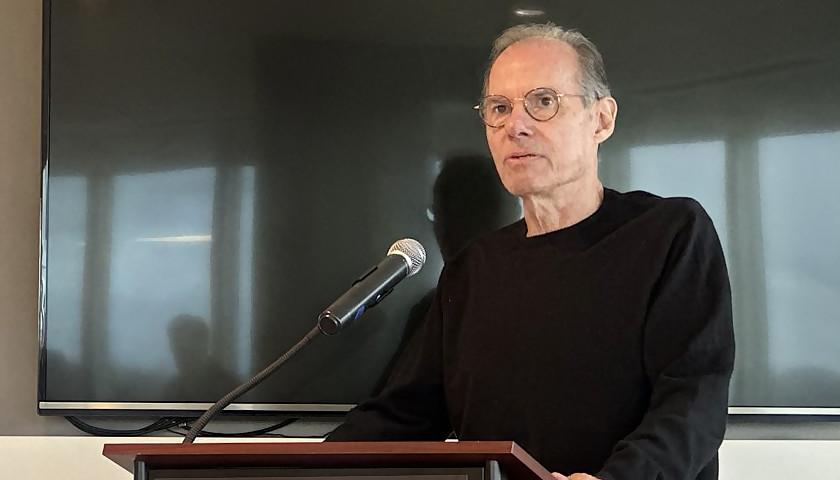by Jennie Taer
Several authors of a Soros-funded Penn Biden Center report advocating for increasing the number of refugees allowed into the country now work in the Biden administration, handling immigration and national security policy.
The Penn Biden Center and the National Conference on Citizenship published a 2020 report, which was funded by a $259,050 grant from Open Society Foundations, recommending increasing the number of refugees permitted to come to the U.S. and easing restrictions on refugee eligibility, actions the White House has since taken. The report was led by Ariana Berengaut, who now serves as senior adviser to national security adviser Jake Sullivan, and Eric Hysen, who was sworn in as chief information officer (CIO) for the Department of Homeland Security (DHS) in February 2021; Rosanna Kim, who serves as senior adviser for the State Department’s Bureau of Population, Refugees, and Migration (PRM) since January 2021, also contributed to the report.
 Soros, a major donor to left-wing causes and candidates, founded Open Society Foundations and remains a major funder of the organization.
Soros, a major donor to left-wing causes and candidates, founded Open Society Foundations and remains a major funder of the organization.
Of the report’s recommendations highlighting how the U.S. government should expand the refugee system, several proposals have been implemented during the authors’ tenures in the Biden administration, including increasing cooperation with the United Nations (UN) to work with the U.S. to bring in more refugees, increasing the number of Latin American and Caribbean refugees and expanding refugee processing in the Western hemisphere.
For instance, the report recommended raising the refugee cap to 125,000, which President Joe Biden later did in fiscal years 2022 and 2023. The Trump administration had previously slashed the refugee cap to 15,000, a historic low for the U.S. government, which Biden increased to 62,500 in fiscal year 2021.
“The U.S. Refugee Admissions Program (USRAP) is at a crossroads. Under the Trump Administration, years of assault on the program have slashed admissions to historic lows, effectively eviscerating a bipartisan tradition of extending a lifeline to the world’s most vulnerable people. If a new president is sworn into office in January 2021, he will likely arrive with a mandate to significantly increase refugee admissions levels,” a summary of the report stated.
Consistent with the report’s recommendation, DHS and the State Department, during Hysen and Kim’s tenures, jointly expanded “processing of refugees from the Western hemisphere” by recently announcing the creation of processing centers in Latin America ahead of the end of Title 42, a Trump-era border policy, on May 11. The centers, which have UN officials working there, determine whether a migrant is eligible for refugee status in either the U.S., Canada or Spain.
The Biden White House also raised the number of Latin American and Caribbean refugees the U.S. would accept to 15,000 in fiscal years 2022 and 2023.
“Under the Obama Administration, the average size of the LAC regional cap was roughly 4,400 with projected arrivals consistently falling significantly short (in FY16, a cap of 3,000 was set with only 1,500 refugees projected to arrive). A new administration should significantly raise the regional LAC cap for admissions as an early demonstration of U.S. commitment to addressing the magnitude and severity of protection needs in the region, particularly in response to refugees fleeing the Northern Triangle countries and Venezuela,” the report stated.
Moreover, the White House restarted the Central American Minors Program, which the report requested, to allow children living in Central America to seek refugee status and live in the U.S. in March 2021. In April, DHS announced that it’s expanding the program to allow certain previous program applicants to reapply.
– – –
Jennie Taer is a reporter at Daily Caller News Foundation.
Photo “Penn Biden Center” by Penn Biden Center for Diplomacy and Global Engagement.









Shut it down Biden Center